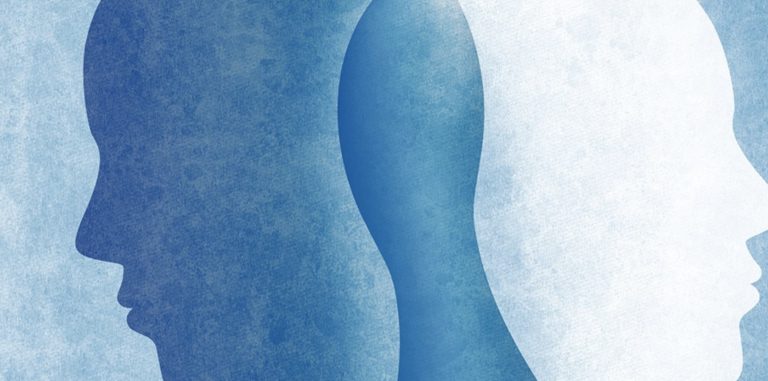Like many mental health conditions, bipolar disorder has a history of being negatively portrayed in popular culture. While Hollywood and the media are doing a better job these days of depicting mental health disorders more realistically, there’s still a lot of misinformation surrounding these conditions. As a result, many people walk around with a deep misunderstanding about what those with bipolar disorder experience and what being diagnosed with bipolar disorder means.
Most folks with an inaccurate assessment of bipolar disorder don’t mean to be that way. But that doesn’t mean we should continue to let misinformation remain common “knowledge.” With this in mind, let’s take a look at six common myths about bipolar disorder:
Story Stages
It’s always one extreme or the other.
The hallmark symptom of bipolar disorder is an extreme shift in mood lasting from several days to several weeks. While a pattern of dramatic mood shifts is the defining characteristic of bipolar disorder, that doesn’t mean those with this condition don’t experience the same range of feelings and emotions as the rest of us. In other words, when someone struggling with bipolar disorder is confronted by bad news, they’re just as capable of reacting rationally as the rest of us. The idea that a bipolar diagnosis means you’re always either sad and depressed or happy and outgoing is a stereotype promoted by mass media rather than an accurate depiction of the disorder.
It’s a rare condition.
Many people assume bipolar disorder is a rare condition. While most people taking a bipolar test will not be diagnosed, roughly 2.3 million Americans are currently living with the disorder. The global number is much higher. Generally speaking, it’s believed one in five people will struggle with bipolar disorder during their lives. This means you probably know at least one person who either struggled with bipolar disorder in the past or is doing so now.
It’s only mood swings.
As with most mental health conditions, many folks think bipolar disorder is “all in your head.” These people insist that someone with bipolar disorder is simply experiencing the same mood swings we all go through and that the solution is to “get over it.” If only it were that easy. Research shows bipolar disorder results from a chemical imbalance in the brain. Those with this condition are dealing with a real health problem that makes it difficult for them to regulate their emotions. While we all have bad days and go through periods of highs and lows, those with bipolar disorder experience this on a whole other level.
It’s caused by drug use.
Another common misconception is that drug use can lead to bipolar disorder. There is absolutely no evidence linking drug use to an increased chance of a bipolar diagnosis. In fact, this misnomer has it backward; having bipolar disorder makes it more likely someone will do drugs. If you know someone with bipolar disorder, pay attention to any surprising or sudden changes in their mood or wellbeing. Given the nature of bipolar disorder, it can be hard to spot, but these unexplained changes could signify they’re using drugs to cope with their condition.
It means you can’t have a job.
While those struggling with bipolar disorder are disqualified from certain high-stress, high-risk jobs, that doesn’t mean they’re incapable of working. So long as they get their mental health under control with treatment, those with bipolar disorder can function in a work environment just like everybody else.
It makes you more creative.
One of the more positive (though nonetheless misleading) things people assume about bipolar disorder is that manic highs are good for creativity. Some folks even think it’s a bad idea to take medication for bipolar disorder since it could stop someone from experiencing the extreme emotions essential for the creative process. The simple truth is that many creative people out there don’t have bipolar disorder and many people with bipolar disorder aren’t particularly creative. What’s more, relying on a mental health condition to be productive is unlikely to work out over the long term.
There’s a lot of misinformation out there about bipolar disorder. The same is true for nearly every mental health condition. We hope this article helps set the record straight when it comes to the myths and realities of living with bipolar disorder.
